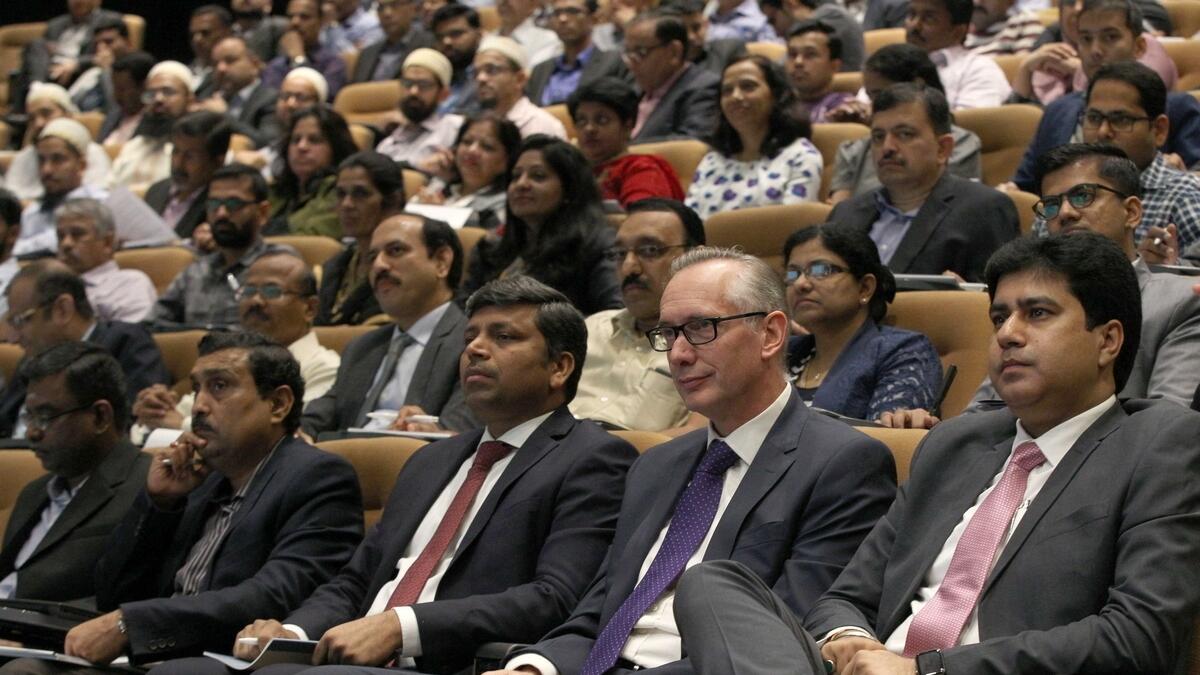The move is seen as part of Ukraine's efforts to reinforce its army as soldiers struggle to hold positions against Russia
VAT will help streamline business processes

dubai - Experts discuss challenges being faced by private sector companies
Speaking about the challenges that businesses across the UAE are still facing after the implementation of the value-added tax (VAT), Sudesh Aggarwal, chairman of the India Trade Centre and Giant Group, said consumers will find it easier to adapt to VAT as compared to businesses.
"Challenges remain for businesses seeking to function in the environment right now, but the government and the Federal Tax Authority are fully aware of those challenges and they are working with businesses to resolve them," he said. "A change is happening in the economy and that is where we need to adapt as businesses. One of the positives in this scenario is that business processes will be streamlined and there will be greater transparency in the environment."
In his opening address, Mohammed Juma Al Musharrakh, director of Sharjah FDI, said VAT is an important step for the UAE. "With VAT coming in at the start of 2018, the government has a new role in clarifying the implications of VAT on the private sector. We are working with the Institute of Chartered Accountants of India - UAE (Dubai) Chapter at events such as these so that the private sector has a clear idea of what is happening and how they can be prepared. We always want businesses to know the advantages of them imposing VAT on their accounts and systems and how it will benefit the UAE economy."
One area that experts focused on during the seminar was designated zones and how VAT would affect them.
"A designated zone specified by a decision of the Cabinet shall be treated as being outside the state," explained CA Rajiv Hira, director of business advisory at KPI.
He clarified that the transfer of goods between designated zones shall not be subject to tax where the goods, or part thereof, are not released, and are not in any way used or altered during the transfer between the designated zones; where the transfer is undertaken in accordance with the rules for customs suspension according to GCC Common Customs Law; and the owner has to give a financial guarantee for the payment of tax.
Asked how a company that has turnover of less than Dh187,500 should deal with the Customs authorities insisting on a TRN, when clearing their goods, experts said as per the guidelines provided by Customs and the FTA, the non-registrant will have to settle the VAT on goods before they may be released.
"After receiving the payments and once the Customs confirms your importer's registration with the FTA, they will clear the goods. Just to add on this topic, the FTA and Customs systems are now integrated and it is easy for customs to verify the importer's registration," Hira said.
When it comes to exports and how rates will apply at designated zones, CA Gopu Rama Naidu, managing partner at KGRN Accounting Associates, revealed that as Saif zone is a designated zone, for the purpose of goods, it will be considered as outside the state. "When a company in Saif zone will sell the goods to the registered mainland company, at that time the mainland company will consider it as an import of goods and will do RCM on the same."
Brian Conn, VAT partner at BDO, UAE, said that it's important for the UAE economy that international transport is zero rated to help facilitate international trade.
- rohma@khaleejtimes.com
More news from
The Jamaican currently holds world records in the 100m, 200m and 4x100m with times of 9.58s, 19.19s and 36.84s respectively
Total property income posted year-on-year growth of 10% to $74m, highest value ever
All official donation channels however remain open through the outlets announced by government agencies
The Starlight Park is a four-building freehold community in Meydan
The 22-time major champion admits his farewell tour hasn't been as enjoyable as he would have hoped
Eating out, poor hand hygiene and erratic weather may be among causes, say medics
The goal-scoring striker is suffering from a muscle injury sustained during the Champions League quarter-final loss to Real Madrid











